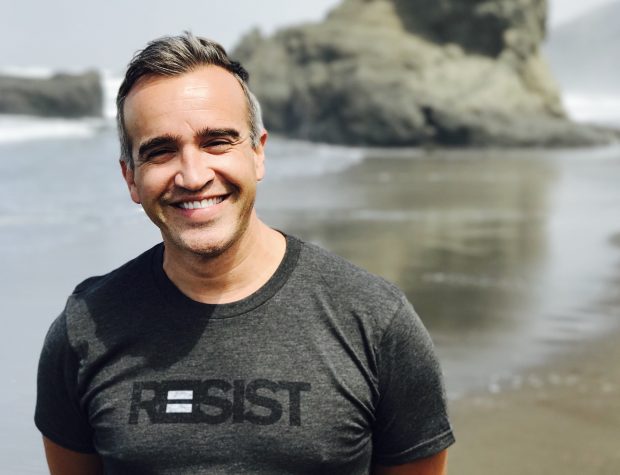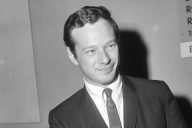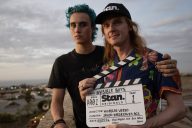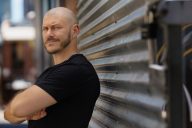He’s a professor, writer, singer and model, but Roger Kuhn is first and foremost an American First Nations activist in touch with his Two-Spirit identity.
Raised upon the Great Plains of America, Roger Kuhn faced many challenges growing up. Racism and homophobia were commonplace but having embraced his Two-Spirit identity, the Muscogee native has built a successful life as a college professor, sex therapist, musician, author and Levi’s model!

Kuhn grew up in North Dakota where he was treated as an outsider, but in a show of resilience discovered many passions including his native spirit, or rather ‘Two-Spirit’ – a term used by Indigenous Americans when embracing their spiritual, sexual and gender identity. It somewhat replaces the historical and offensive term ‘Berdache’.
“I stood out from the other kids with blonde hair and blue eyes. My childhood was full of racism and homophobia.”
“I was raised in a very small farming community called Napoleon and spent my adolescence in West Fargo,” says Kuhn.
“The interesting thing about my upbringing as an Indigenous person is that while there are many tribes in North Dakota, my tribal territory is in Poarch Creek, Alabama. I have a white father of German descent and my mother is native to the United States. She was the only non-white person in town, excluding me. I’m a little darker skinned so I stood out from the other kids who had blonde hair and blue eyes, so my childhood was full of racism and homophobia.”
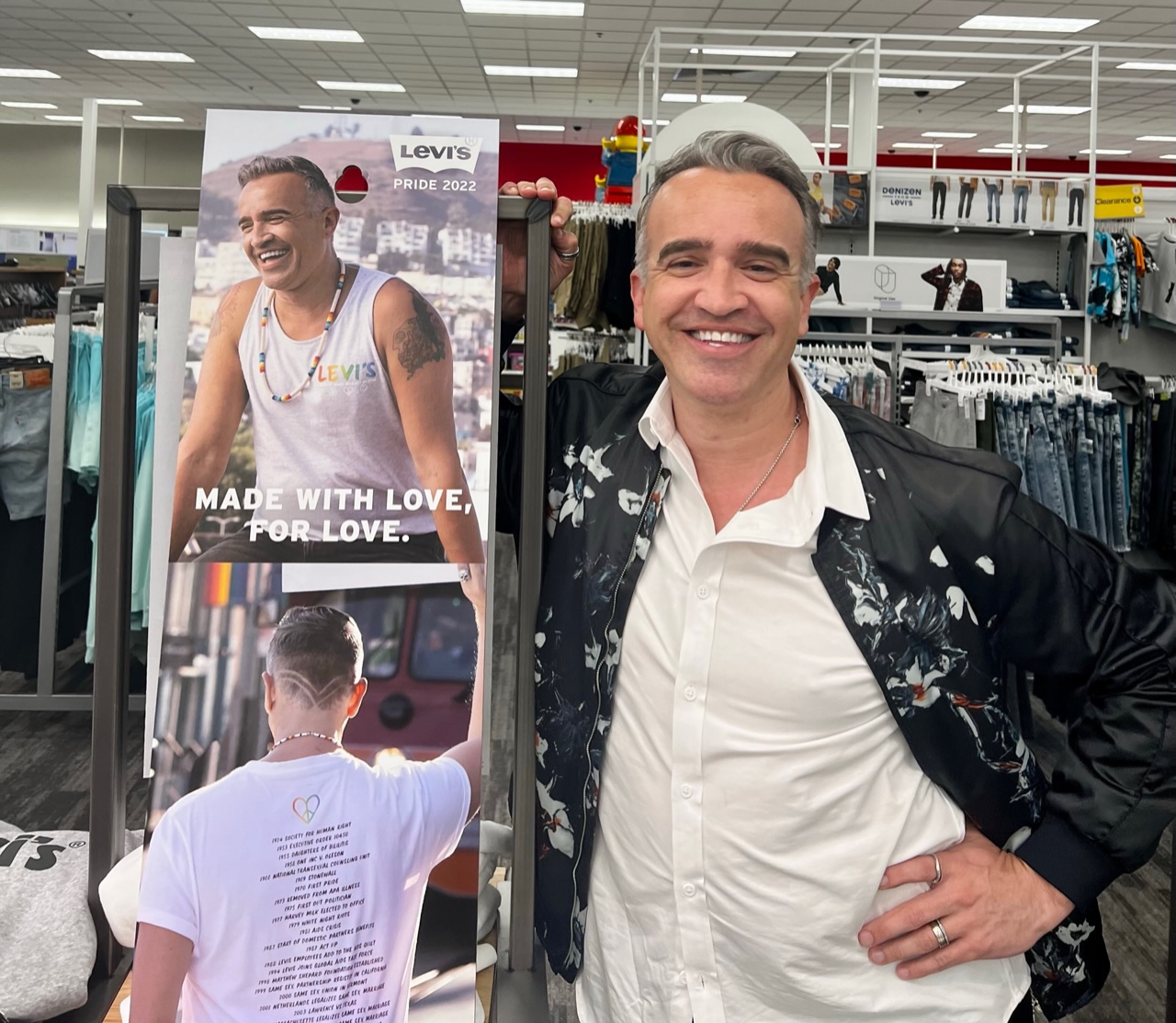
Kuhn spent most of his upbringing amidst his father’s white family while embracing his Indigenous culture through his mother.
“I would always say to white folks, “Don’t worry, I speak white fluently!” laughs Kuhn.
“People did expect me to have a very Indigenous perspective, which was something I did embrace. My mother raised me as an Indigenous person, so even though I fully acknowledge that I have a white father, I was brought up as a native person. My identity has always been Poarch Creek and that’s still how I identify in the world – Indigenous first, Two-Spirit Indigenous queer second and then gay.”
“I identify as Indigenous first, Two-Spirit Indigenous queer second and then gay.”
From an early stage in his life, Kuhn felt a passion to help and support those challenged by their sexuality, be it sexual orientation, gender identity or the physiological effects that come within that space.
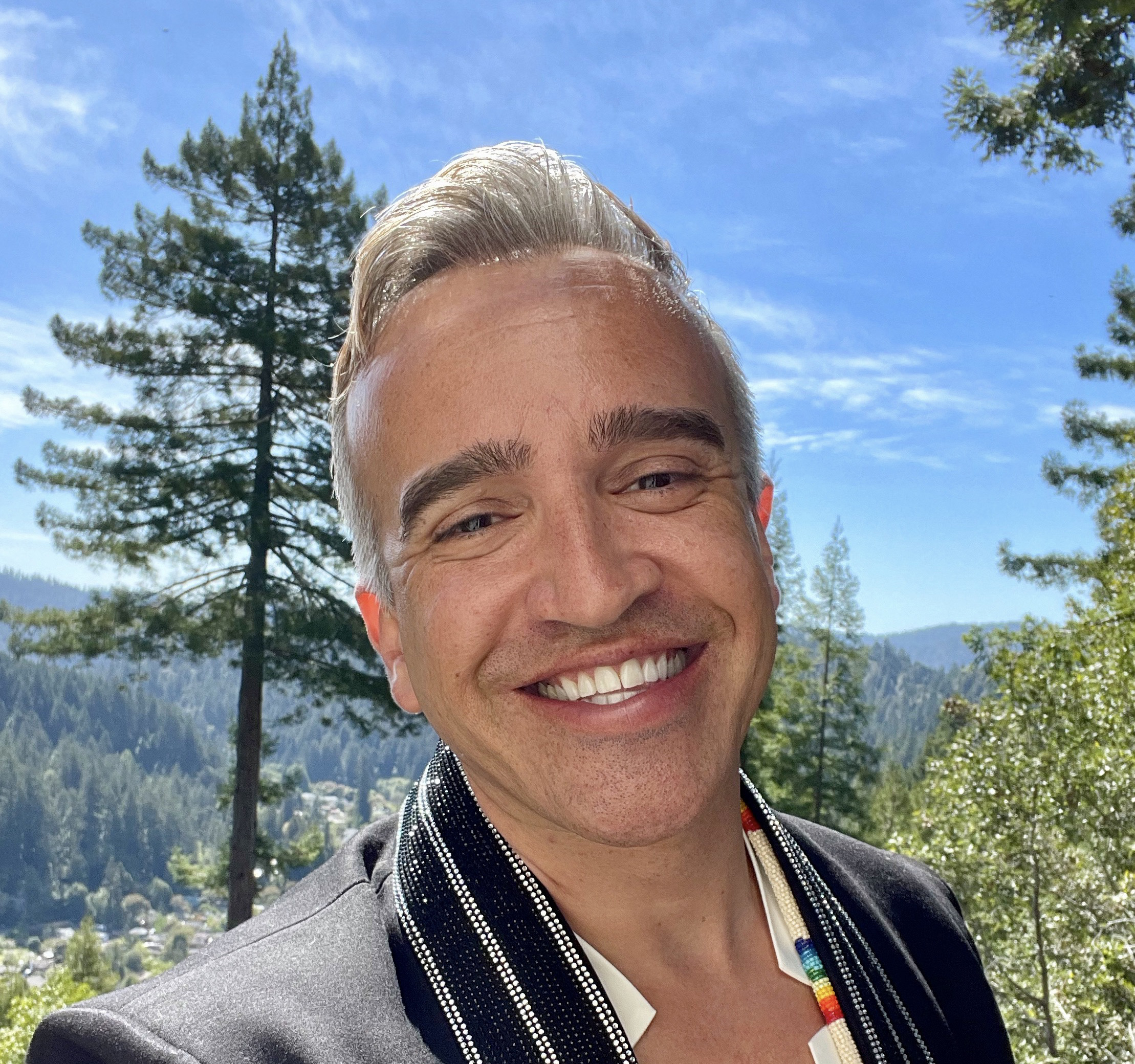
“I decided to dedicate my life to those who are also challenged by their sexuality in some way,” he says.
“It’s an honour to help others feel the liberation possible through expressing their authentic sexual self, and I strongly believe that pleasure heals. A part of my work as a psychotherapist is to host a talking circle at Pride events, where we discuss healthy sexuality. We also do masterships with other native organisations, making sure the Two-Spirit representation is seen.”
For the First Nations people of America, a community conference is known traditionally as a powwow, a ceremony not unlike the Indigenous Australians’ corroboree or Hawaiian luau. As such, the powwow is also a part of the Two-Spirit community, as Kuhn explains.
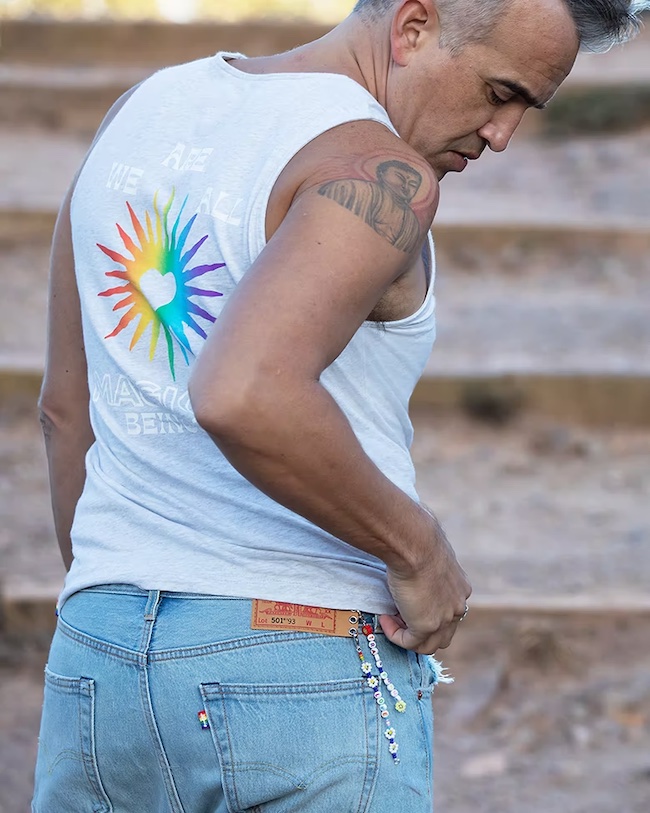
“There’s a moment in powwow culture that we call Grand Entry, and that is when all the dancers come into the arena. They’ll come in full regalia and it’s so incredibly moving to be in a space where all these wonderful Two-Spirited and queer LGBT native people are together in ceremony. It’s very overwhelming for me to see that. A few years back while watching this, I was reminded of a word in my language ‘vnokeckv’ (pronounced ah no ka chee coh) which means love. It doesn’t mean ‘I love you’ but ‘community love’. In that moment I thought “Oh my gosh I am experiencing vnokeckv and I felt it deep within my body.”
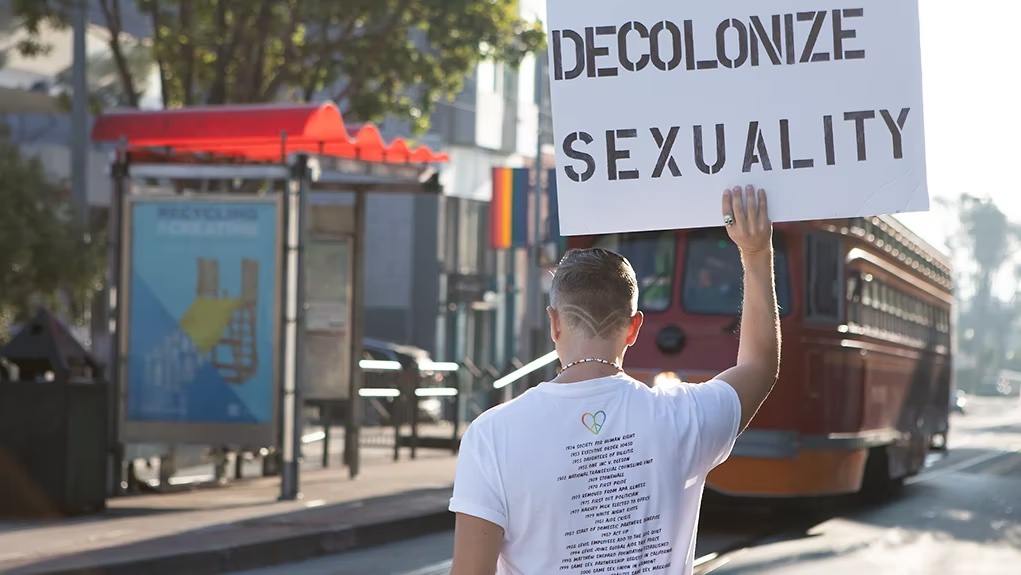
Kuhn couldn’t help but wonder if other Two-Spirit people felt similar, so in his PhD research posed the question “How do you define love as a Two-Spirit person?”
“The top-end answer was the same from everyone,” says Kuhn.
“That Two-Spirit love was community! This is also very true of other Indigenous cultures, whether it is African, Australian or New Zealander. We are a very communal-based people.”
Kuhn is also a board member for the Bay Area American Indian Two-Spirits (BAAITS), an organisation striving to recover and restore the role of Two-Spirit people within the American First Nations community. It’s a forum of spiritual, cultural and artistic expression.
“Back in 1975 a group called Gay American Indians was formed by Randy Burns,” says Kuhn.
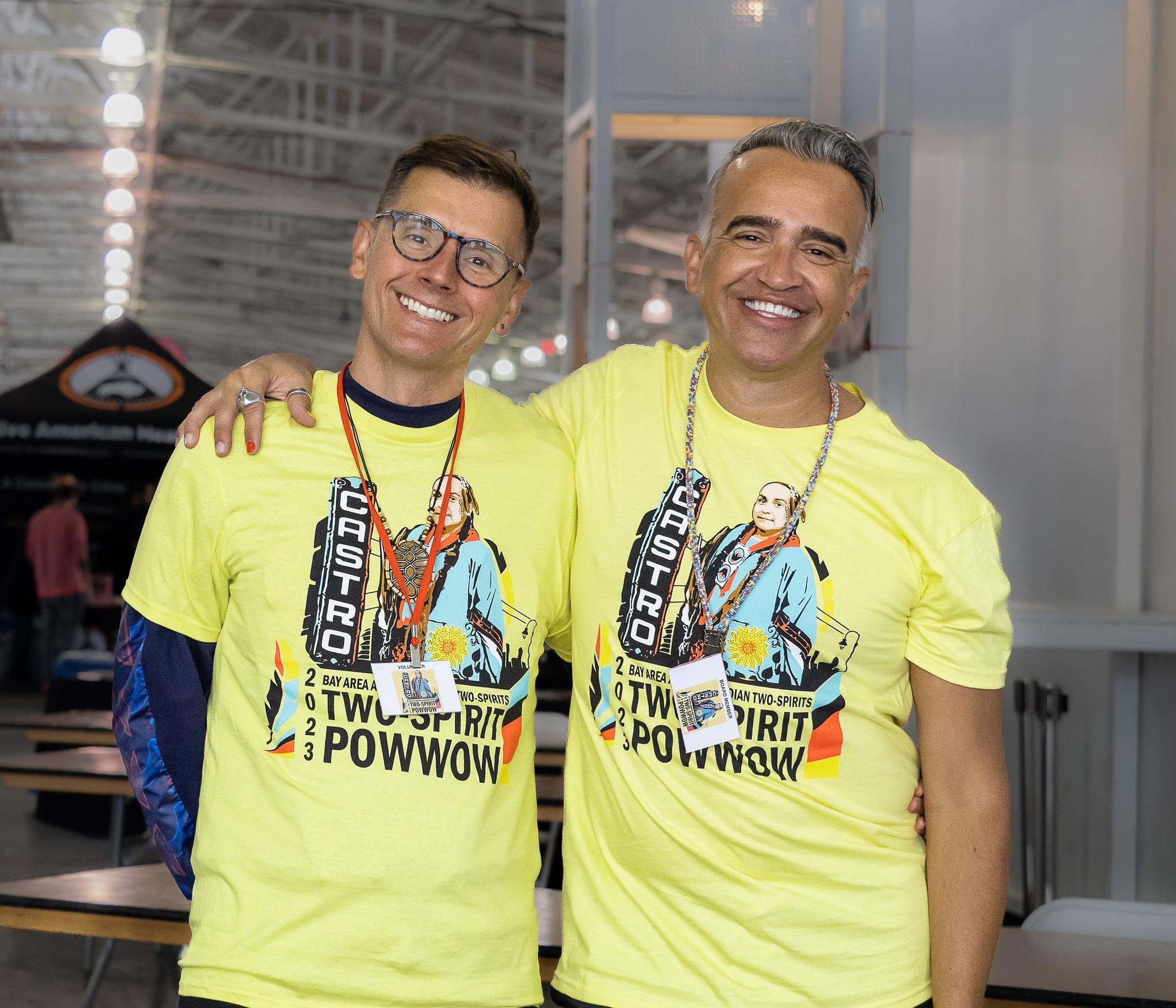
“He was a Northern Paiute and along with Barbara Cameron also from the same Standing Rock people, created Gay American Indians. It was formed because they found they were being excluded from a lot of other American Indian organisations that held protests and such. Many years later the Two-Spirit movement came about and BAAITS formed to host a gathering which also included Canadians. BAAITS eventually began their own Two-Spirit powwow in San Francisco. Originally, they thought they’d be lucky to get a hundred people in a small room at the San Francisco LGBT Centre, but over 500 showed up. We now get over 5,000 people attending annually. Being an organiser has been one of the biggest highlights of my life.”
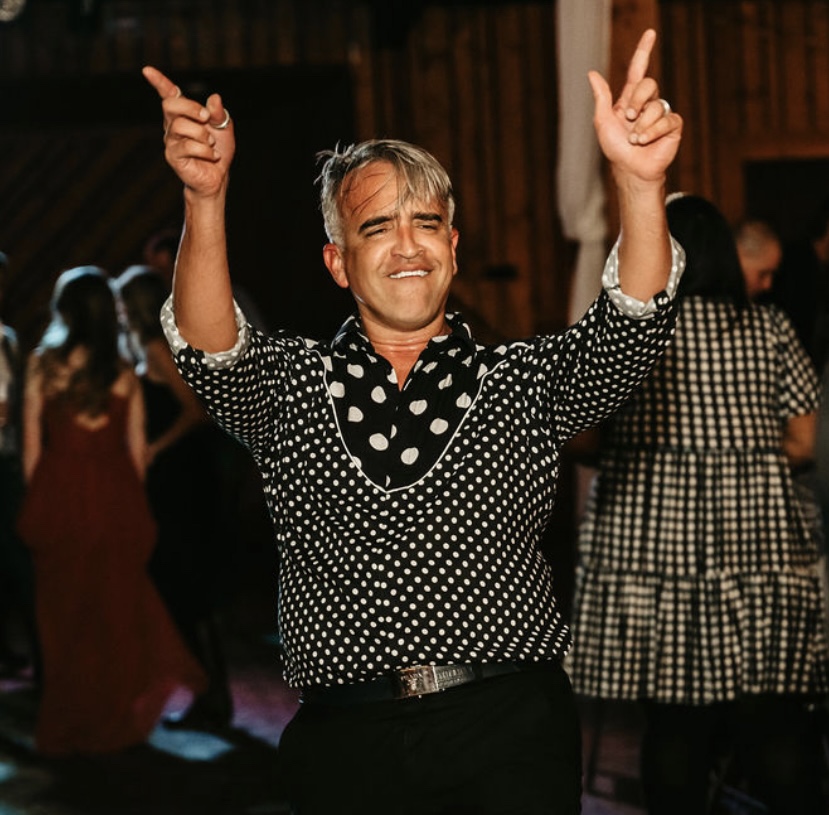
But as Kuhn explains, the Two-Spirit term has an intriguing and significant background, particularly in redefining the labels used for LGBT First Nations people in the past.
“The history in the United States around colonialisation is pretty broad,” he says.
“Back in 1975, a group called Gay American Indians was formed by Randy Burns,”
“When the settlers first arrived, they used the French term ‘berdache’ to describe us. Translated into English it means ‘kept boy’ or sexual slave, even catamite. So, in 1990 a group of Indigenous artists and activists got together and created the Two-Spirit name based upon a dream by Dr Myra Laramee from the Fisher River Cree Nation. The term came to her meaning the representation of multiple genders existing in one person – beyond the binary of male and female.”
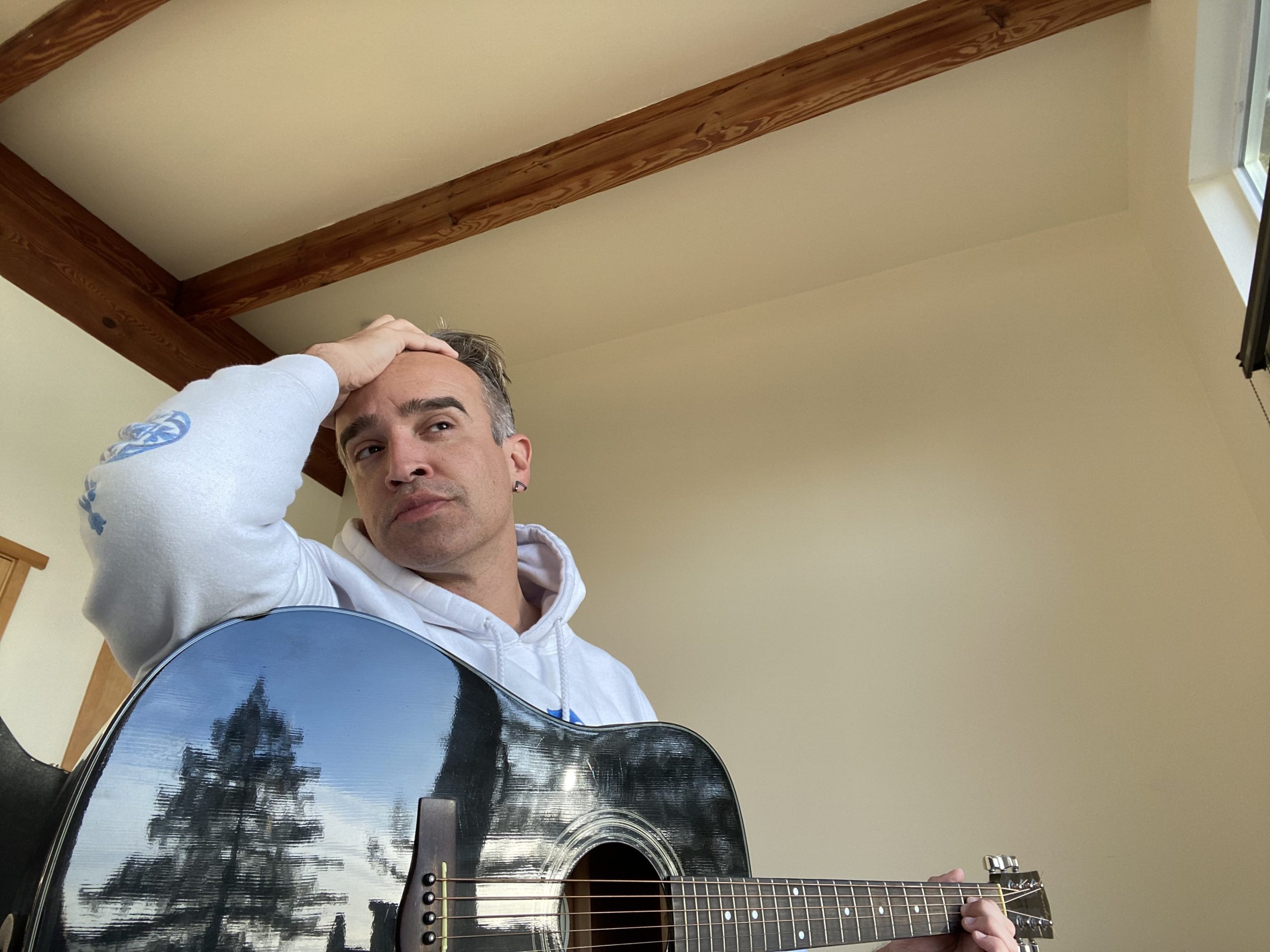
“Many Indigenous cultures across the globe have a similar concept,” says Kuhn.
“Even in my Muscogee language we have the term ‘ennvrkvpv’ (pronounced ‘in nuth gah buh’) which in English means ‘the middle’. I like to think of Two-Spirit as a sphere with the people at the centre. We can go up and down, left to right and all kinds of diagonals because our fluidity is in both our gender and sexual orientation.”
As a college professor with a Ph.D. in Human Sexuality, Kuhn teaches courses on Native American sexuality. His book, released next February, is titled Somacultural Liberation: An Indigenous, Two-Spirit Somatic Guide to Integrating Cultural Experiences Toward Freedom. He feels it is important for Two-Spirit people to come together because it’s how they heal.
“We do not heal individually and alone, we heal together as a group,” he says.
“My work around sexuality uses the phrase ‘de-colonize sexuality’. I wanted to point out that in gay and queer spaces it’s different for us. Our experiences as Indigenous people are more than just being gay, queer or LGBT as we have different experiences. The story I always like to share is from the night before San Francisco Pride where BAAITS always marches. I made a sign that said, “Decolonise Sexuality!” I carried it down Market Street high above my head, and it was a moment that changed my life. People on the sides were hooting and hollering saying, “That’s awesome!” But most gay people would ask what it meant. I couldn’t stop, so I yelled “Figure it out!” At the end of the parade route, I knew my work as an academic and a psychotherapist had changed forever because that message was ringing out so clearly to people.”
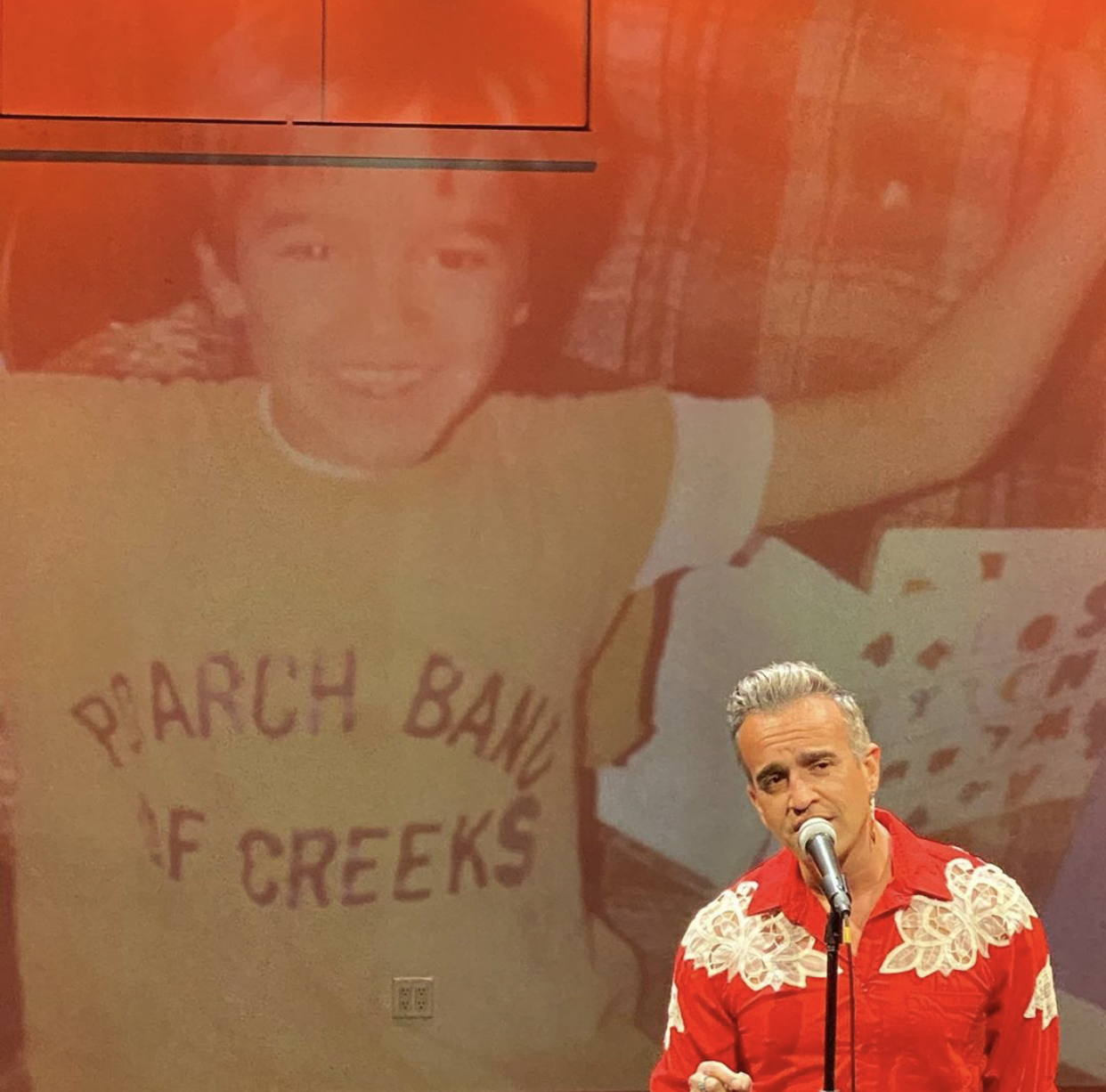
So, what does decolonise sexuality mean? It’s about correcting the unethical, offensive and archaic policies put upon marginalised people throughout the European colonisation and sovereignty of new lands.
“Whether it’s against Indigenous or LGBT people, it’s all a form of colonialism and Manifest Destiny, says Kuhn.
“They’re all deeply entwined together, and these laws are based on documents produced in the sixteenth century. You must wonder what we are doing as a culture when we’re still basing things upon these documents – which were created to give people some sense of ordained rights to genocide! This is based on Christian ideology giving people permission to murder, rape and pillage. We’ve been under colonial rule in the United States for over 500 years and it’s based on the Manifest Destiny, not to mention the Doctrine of Discovery which some sort of papal authority made up. I mean, come on folks, wake up and realise what you’re talking about!”
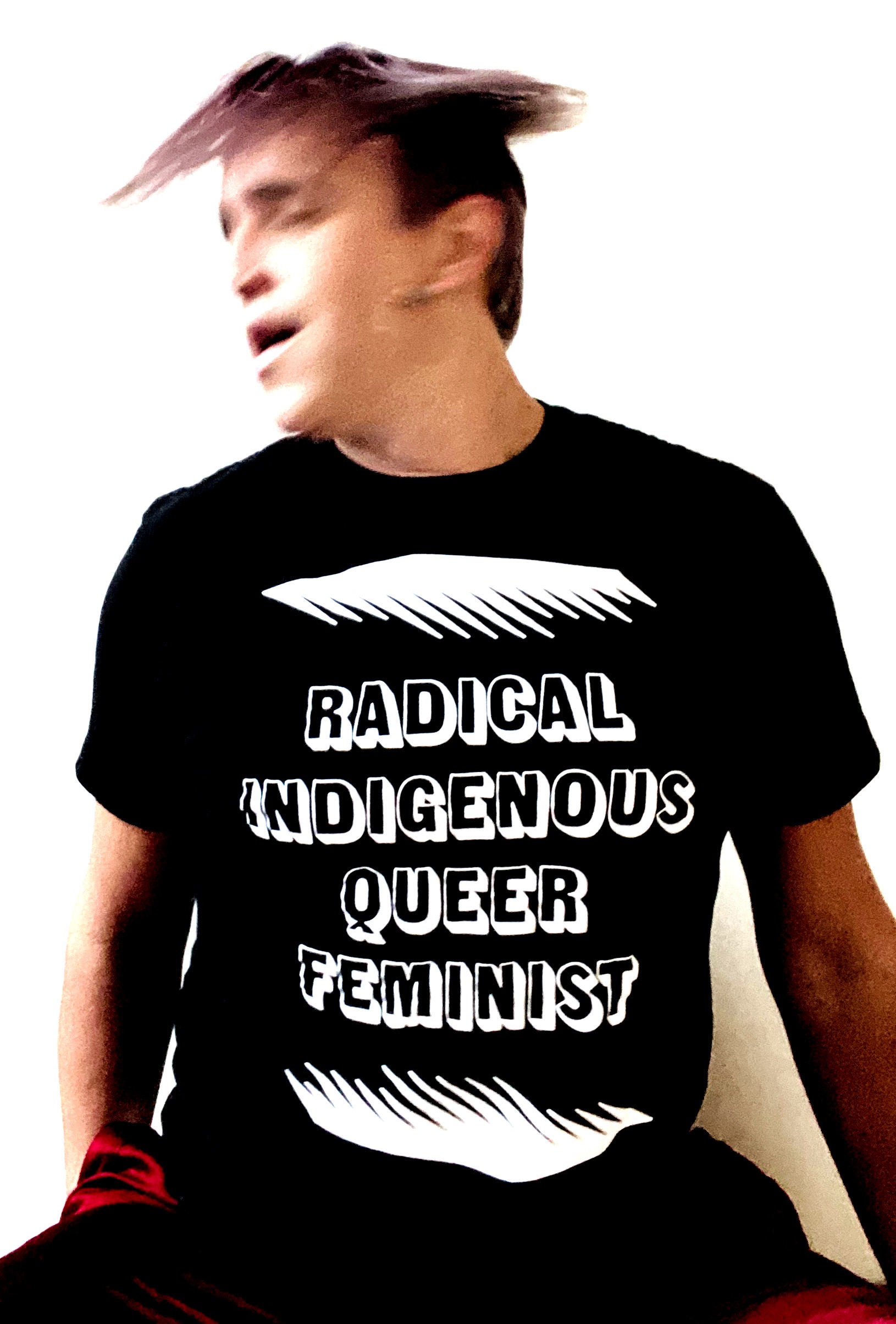
Historically, the Manifest Destiny is a belief that the settlers of America had a divine right to civilize the West under the Will of God. Similarly, the Doctrine of Discovery was a European law to legitimise colonisation, coming into effect after Columbus discovered North America in 1492.
“It’s so deeply ingrained in our culture,” says Kuhn.
“When it comes to Indigenous sexuality, we were queer, gay, lesbian and trans before colonialisation got here and that’s been documented by settlers. It’s the same in Australia and New Zealand. Being queer is not some new thing. It’s deeply ingrained in who we are as people, and in our culture, we had positions of authority. We were revered, we took care of children, were matchmakers and made peace with white nations. That’s very similar to what we do as queer people today. We heal people and send love out to the community. We’re doing the same thing that my ancestors had done for hundreds of years.”
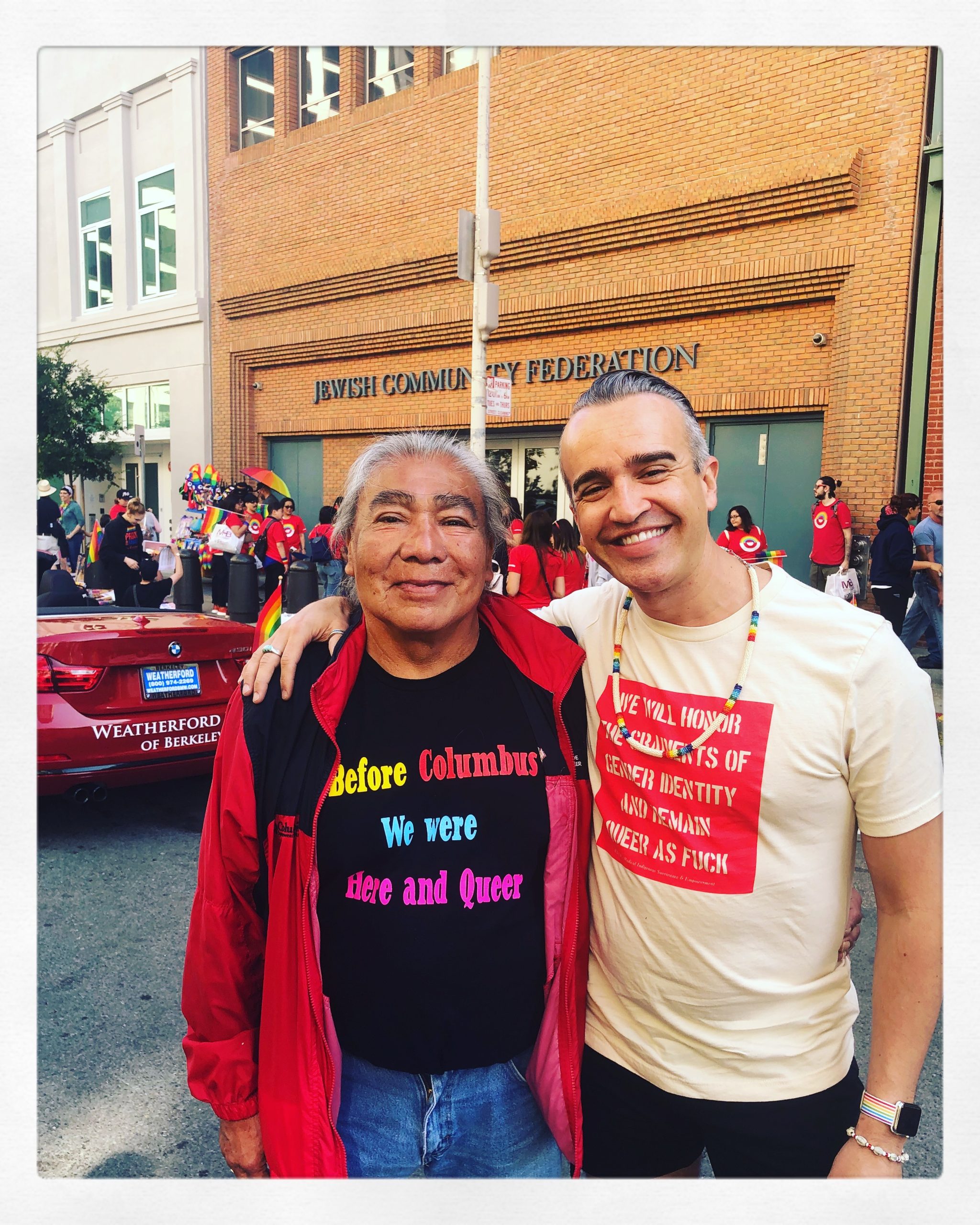
With Australians set to vote in a national referendum aimed at giving Indigenous peoples a ‘voice to parliament’, Kuhn along with other Native Americans feels empathy and an affinity to our First Nation community.
“I’m aware of the pursuit for an Australian Indigenous Voice to Parliament,” says Kuhn.
“I’m often asked questions about people in Australia, New Zealand and Polynesia. We have similar issues here in the United States and even though we have representatives that identify as Indigenous serving in our government, we don’t have representatives specifically from every tribal nation. There are 574 tribal nations across the US, and I know this is similar in Australia and New Zealand, where Indigenous people do not have representation the way they should. In California we just had something of a state referendum about gambling, but why are white folks voting on whether native people have the right to do things? It blows my mind! It saddens me that this is the case not just in the US but also in Australia. I may not know the full extent of what’s going on in Australia, but I hope it turns in favour of the Indigenous people.”
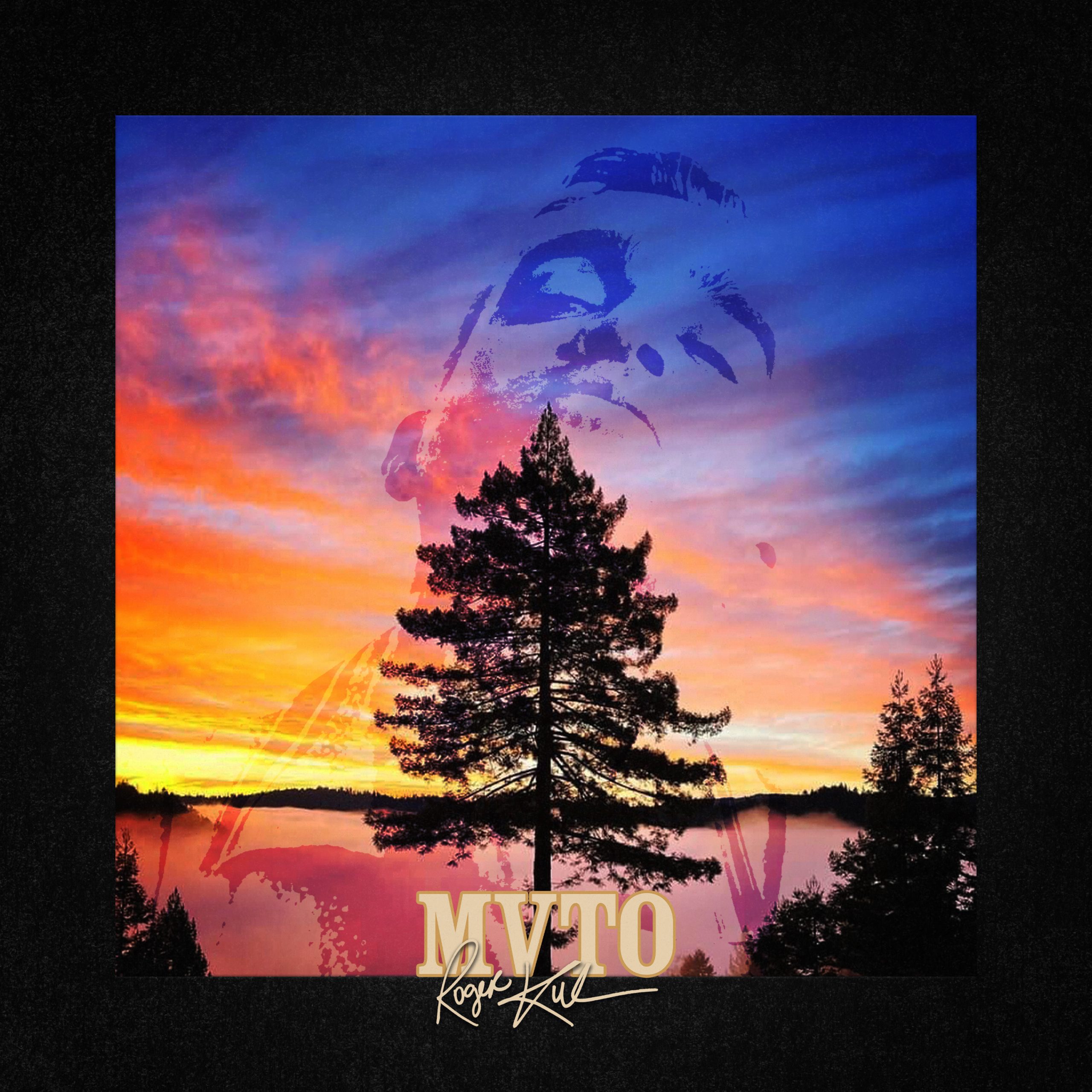
As well as releasing his new book, Kuhn has rediscovered his musical roots and has released a new album titled Mvto (pronounced muh doe), meaning ‘thank you’ in Muscogee.
“When I was younger, I won a contest called the Next Gay Megastar”. I won a thousand dollars and made an album and video which ended up on the Logo TV channel. There was a countdown show called the Click List and I was number nine underneath my favourite rockstar Melissa Etheridge at ten!”
“When it comes to Indigenous sexuality, we were queer, gay, lesbian and trans before colonialisation got here”.
Kuhn recorded Mvto during the pandemic, creating an anthology of his favourite compositions from the past two decades. The song Mvto went to No.1 on the Alt Q Radio charts.
“I have a big window overlooking a beautiful river with a redwood tree which inspired my song, and the vinyl record sleeve features it. I’m now touring from California to Mexico and New Orleans to Alabama where my reservation is. But I’m finishing in NYC which will be a homecoming to where my musical career started.”
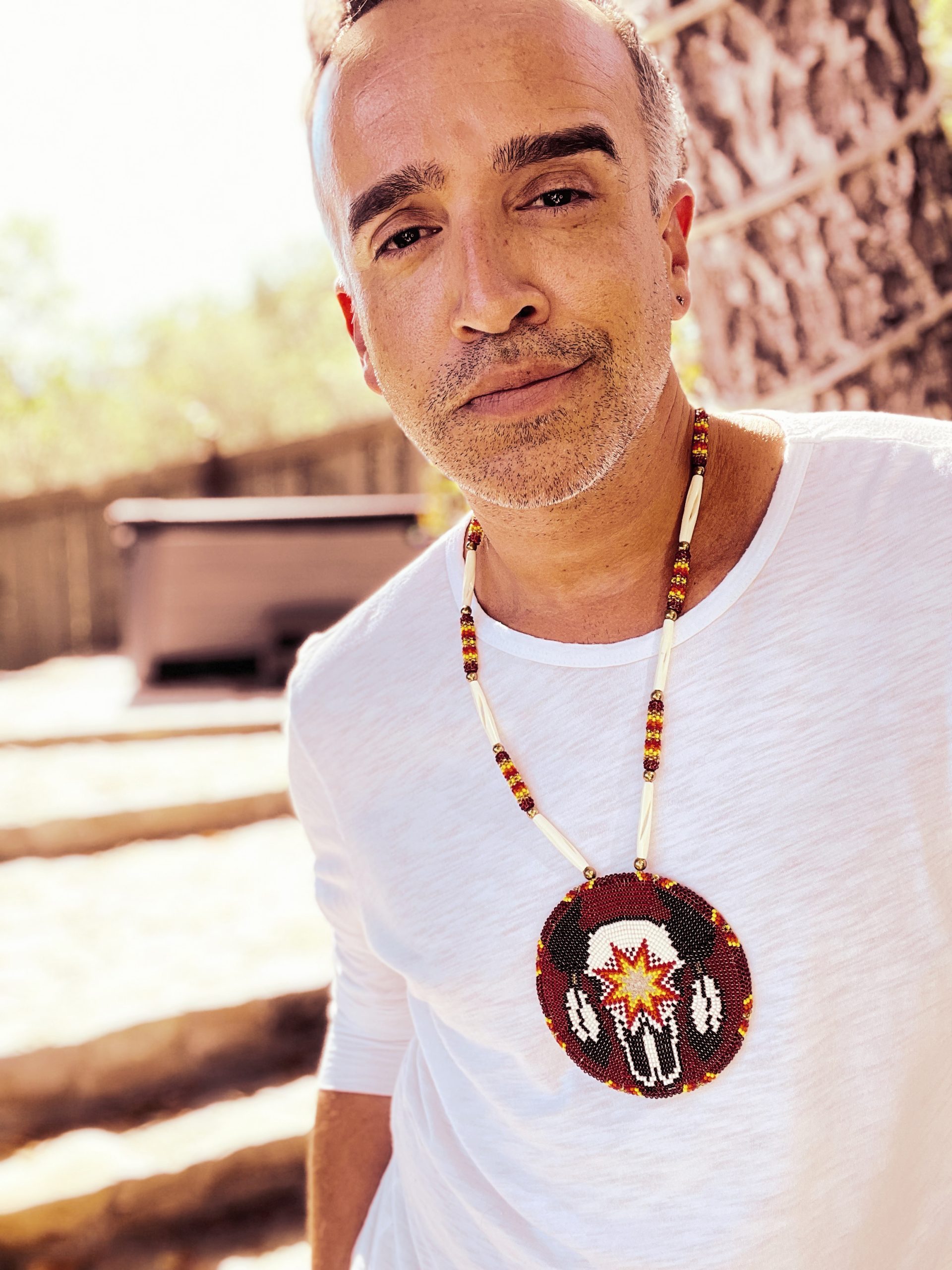
But it’s not just about the music. When the Levis company heard about Kuhn’s work and his captivating sign at Pride March, they reached out to include him in their Pride campaign.
“It was amazing how one gesture from carrying that poster led to a Levis poster!” he says.
“The funny thing about the Levis campaign was that a friend on social media tagged me in a picture saying, “Look who I found at Target”. It was me! Suddenly I was getting tagged in pictures from Alabama to New York and Arizona! It was even in the Macy’s stores! I went to Target one day and asked if I could have the poster. The guy was like “Why would you want that?” I said, “I’m in it!” That campaign changed my life because I was given a platform to talk about Two-Spirit people and the issues that impact us. It was an invitation to come into the room and speak. But I’m the kind of person who also demands to have a seat at the table and rip the door off the hinges as I come in because there’s a bunch of people behind me who also deserve a seat.”
Kuhn, who’s happily married to partner Sean, is modest and eternally optimistic. He wants people who believe in something to put it out there, because they will be heard, and you just never know what lives you can change.
“The accolades I’ve received have all been flattering, but they are also life and work-affirming. It’s just the beginning!”
For more on Roger Kuhn including his book and music visit: rogerkuhn.com and rogerjkuhn.com

